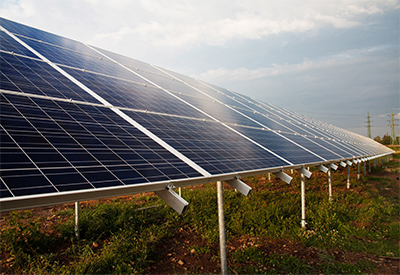New Report Weighs the Merits of a Rapid or Gradual Energy Transition

Sept 12, 2019
Will the global energy transition from fossil fuels to sustainable energy be gradual or rapid? This key issue for the 2020s has profound implications for governments, energy producers, technology providers as well as industrial and private consumers. But, more importantly, the difference between a gradual and rapid transition will determine the climate future of humanity. A gradual transition will mean that the goals of the Paris Agreement will be badly missed. A rapid transition will give humanity a chance to meet the goals of the Paris Agreement and keep temperature well below 2 degrees Celsius.
Intending to both inform and spark further debate, this White Paper compares the two transition scenarios for our energy future, setting out two clearly different narratives. The Gradual narrative is that the energy world of tomorrow will look roughly the same as that of today – implying that the global energy system has an inertia incompatible with the Paris Agreement.
The Rapid narrative is that current and new clean energy technologies are rapidly supplying all the growth in energy demand and together with new policies will reshape markets, business models and patterns of consumption leading to a peak in fossil fuel demand in the course of the 2020s. Whether the world will follow a path of a gradual or rapid transition will also make a significant difference to business across the energy spectrum. The rapid transition will bring new opportunities but the need to adapt to faster change will be greater.
While the global energy system and the factors that impact it are more complex than any scenario or narrative can capture, this paper builds on different existing scenarios and summarizes the main ways in which they differ. It also highlights what to look for over the course of the next decade to see which narrative plays out.
The Global Future Council on Energy 2018-2020 strives to inform the debate and decisions for the near- and long-term energy future.
The lead authors of this White Paper are: Kingsmill Bond, New Energy Strategist, Carbon Tracker Initiative; Angus McCrone, Chief Editor, BloombergNEF; and Jules Kortenhorst, Chief Executive Officer, Rocky Mountain Institute. Including significant input from the World Economic Forum Global Future Council on Energy.
This White Paper provides a framework for navigating the mosaic of often conflicting narratives for how the energy system is evolving. The two very different narratives about the energy transition are: Gradual and Rapid. This paper summarizes the main ways in which they differ and what to look for over the course of the next decade to see which narrative is playing out.
Go HERE for the full report









![Guide to the Canadian Electrical Code, Part 1[i], 26th Edition– A Road Map: Section 56](https://electricalindustry.ca/wp-content/uploads/2022/11/Guide-CE-Code-2.png)






